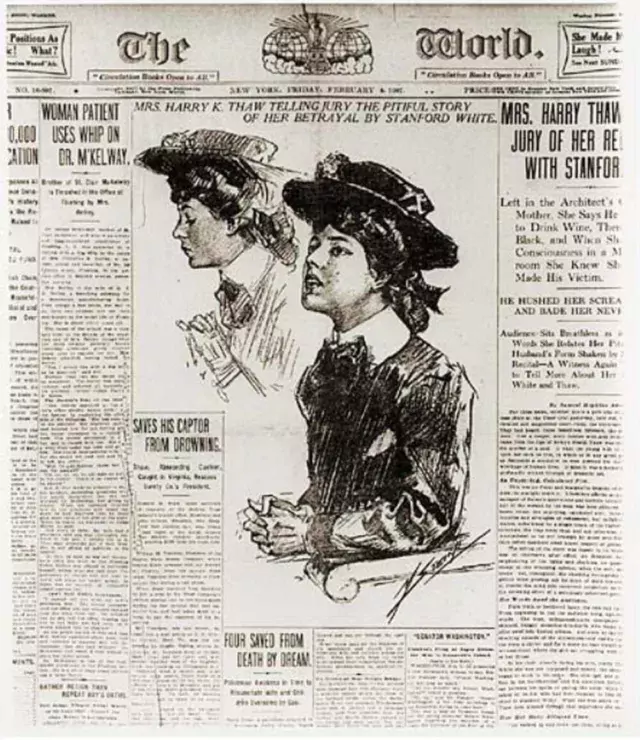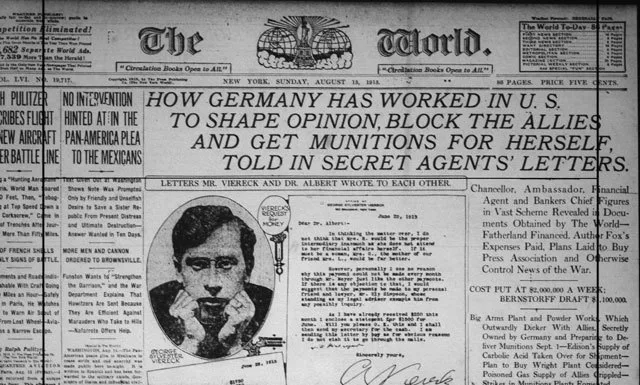From The Wall Street Journal:
The House on Wednesday is expected to vote on a bill that would give popular social-media app TikTok an ultimatum: Break up with the Chinese Communist Party (CCP), or break up with the U.S. It didn’t need to come to this, but Beijing and TikTok’s Chinese-owner ByteDance left Washington with no choice.
Congress has spent years debating how to mitigate the national-security risks of TikTok’s Chinese ownership that have grown with the site’s popularity. About 150 million Americans use TikTok, and the app is a top source of news and search for Generation Z.
Donald Trump tried in 2020 to force ByteDance to divest TikTok, but his executive order was blocked in court, partly because the President lacked clear authority from Congress. Legislation by Wisconsin Republican Mike Gallagher and Illinois Democrat Raja Krishnamoorthi aims to overcome the legal obstacles.
Their bill would ban TikTok from app stores and web-hosting services in the U.S. if the company doesn’t divest from ByteDance. It also establishes a process by which the President can prohibit other social-media apps that are “controlled by a foreign adversary.” The bill is narrowly tailored while giving the President tools to combat future threats.
Banning TikTok should be a last resort, but ByteDance and Beijing have demonstrated that they can’t be trusted. Reams of evidence show how the Chinese government can use the platform for cyber-espionage and political influence campaigns in the U.S.
Numerous reports have found that posts about Uyghur forced labor in Xinjiang province, the Tiananmen Square massacre, Hong Kong protests, Tibet and other politically sensitive content in China are suppressed on TikTok. A December study by the Network Contagion Research Institute found significant disparities between hashtags on Instagram and TikTok. The site also appears to amplify content that sows discord and ignorance in America. Pro-Hamas videos trend more than pro-Israel ones. Videos promoting Osama bin Laden’s 2002 “letter to America” went viral on TikTok last autumn.
How has TikTok responded to allegations that its algorithms are controlled by the Chinese government? In January it restricted researcher access to its hashtag data to make it harder to study. “Some individuals and organizations have misused the Center’s search function to draw inaccurate conclusions, so we are changing some of the features to ensure it is used for its intended purpose,” a TikTok spokesperson said.
Yet TikTok can’t explain why posts that are divisive in America go viral, while those that are sensitive for the CCP get few views. TikTok tried to ameliorate concerns about CCP wizards behind the screen with its Project Texas, which houses American user data on Oracle servers and gives the U.S. software company access to its algorithms.
But TikTok’s algorithms are still controlled by ByteDance engineers in China. The Journal reported in January that TikTok executives have said internally that they sometimes need to share protected U.S. data with ByteDance to train the algorithms and keep problematic content off the site. Like protests for democracy in Hong Kong?
TikTok’s other major security risk is cyber-espionage. The app vacuums up sensitive American user information, including searches, browsing histories and locations. This data can and does flow back to China. “Everything is seen in China,” a TikTok official said in a leaked internal recording reported by Buzzfeed.
ByteDance employees tried to uncover internal leakers by spying on American journalists. After this surveillance was reported, ByteDance blamed “misconduct of certain individuals” who were no longer employed. But there’s nothing to stop CCP puppets in ByteDance back-offices from spying on Americans.
Meta ignited a firestorm several years ago when it was found to have given British consulting firm Cambridge Analytica access to user personal data. Political campaigns used the data to target ads. TikTok’s privacy risks and malign political influence are more disturbing since it answers to Beijing.
Xi Jinping has eviscerated any distinction between the government and private companies. ByteDance employs hundreds of employees who previously worked at state-owned media outlets. A former head of engineering in ByteDance’s U.S. offices has alleged that the Communist Party “had a special office or unit” in the company “sometimes referred to as the ‘Committee.’”
. . . .
In any case, the House bill doesn’t restrict First Amendment rights. It regulates national security. It also has ample precedent since U.S. law restricts foreign ownership of broadcast stations. The Committee on Foreign Investment in the United States forced the Chinese owners of Grindr, the gay dating app, to give up control of the company.
Link to the rest at The Wall Street Journal (Sorry if you encounter a paywall)
PG thinks the WSJ opinion writers are going more than a bit overboard in their fears and, particularly, their “solution” to the problem they’ve overthought.
China is going to continue to engage in Communist behavior regardless of what happens with TikTok. If, “everything is seen in China,” then China is spending a huge amount of human time looking at TikTok videos.
“TikTok can’t explain why posts that are divisive in America go viral.”
Posts that are divisive in America frequently go viral without any help from foreign nations. It’s a feature of democratic societies, not a bug.
People disagree on political issues face-to-face, by snail mail, by email, via newspaper editorial pages and, especially, online. Look at what was printed in old-fashioned newspapers run by William Randolph Hearst and Pulitzer when there were far fewer sources of news available to regular folk than is the case today.
When a case containing dismembered human remains surfaced in New York’s East River in June of 1897, the publisher of the New York Journal–a young, devil-may-care millionaire named William Randolph Hearst–decided that his newspaper would “scoop” the city’s police department by solving this heinous crime. Pulling out all the stops, Hearst launched more than a journalistic murder investigation; his newspaper’s active intervention in the city’s daily life, especially its underside, marked the birth of the Yellow Press.
Most notable among Hearst’s competitors was New York City’s The World, owned and managed by a European Jewish immigrant named Joseph Pulitzer. These two papers and others exploited the scandal, corruption, and crime among the city’s most influential citizens, and its most desperate inhabitants






PG claims no deep expertise about what goes on in the uncountable number of online discussion groups, but suspects there are copious numbers of people from all sorts of places who subscribe to the belief that Joe Biden is being controlled by alien invaders, just like Donald Trump was before him.
Nevertheless, the bill is poorly written and a can of worms.
It’s going to get vetoed anyway, so what does it matter?
It’s just posturing.
I am shocked — shocked, I say — to find indications that a government is using purported private actors to both insert propaganda and extract information from a nonallied government. Oh, wait, that’s how the BBC World Service got its start (you don’t really think it was broadcast-only, do you?). ByteDance is merely slightly more administratively efficient in putting it all under one obvious roof.
VOICE OF AMERICA, too.
But openly and aimed at the outside world.
The gerontocracy is less open, though, about its *internal* propaganda manipulations and indoctrination via willing idiots.
“TikTok can’t explain why posts that are divisive in America go viral.”
Yet TikTok can’t explain why posts that are divisive in America go viral, while those that are sensitive for the CCP get few views.
That is indeed the crux of the matter.
TikTok is being used as a vehicle for CCP agitprop. This is not a side-effect; this is its intended purpose.
As for this—
‘If, “everything is seen in China,” then China is spending a huge amount of human time looking at TikTok videos.’
It’s not about the videos. It’s about collecting personal data from anyone who has the app installed on their device. That doesn’t require any human time at all, beyond maintaining the software and the servers (which has to be done in any case). What it does is enable Comrade X in Beijing to snoop on any foreigner he wishes at the click of a mouse; and then to harass, deplatform, doxx, sue, or even threaten that foreigner in his own country.
It’s espionage augmented by Big Data, and once again, this is its intended purpose.
The WSJ’s opinion writers are not ‘going overboard’ on this.
Neither can youtube.
But they do it anyway. Typically by demonetizing/shsdowbanning and age restricting/shadow banning. They rarely force the material out (at least in the US, where they’d have to expain why) but they make it hard to find the videos and “accidentally” desubscribe folks from the channels.
It’s not just China–gun videos, “some” politician channels, and other “contentious” content gets squeezed, too.
Here’s a regular target:
https://m.youtube.com/watch?v=qXOSNMhbNW4
Any video documentation of Tibet, south china sea, Uighurs, organ harvesting, Tianaman square, Hong Kong protests, protest in general, etc violate “community guidelines”, but “mostly peaceful protest” and MSNBC videos get pushed prominently in searches.
They even have a clear skew on gaming videos.